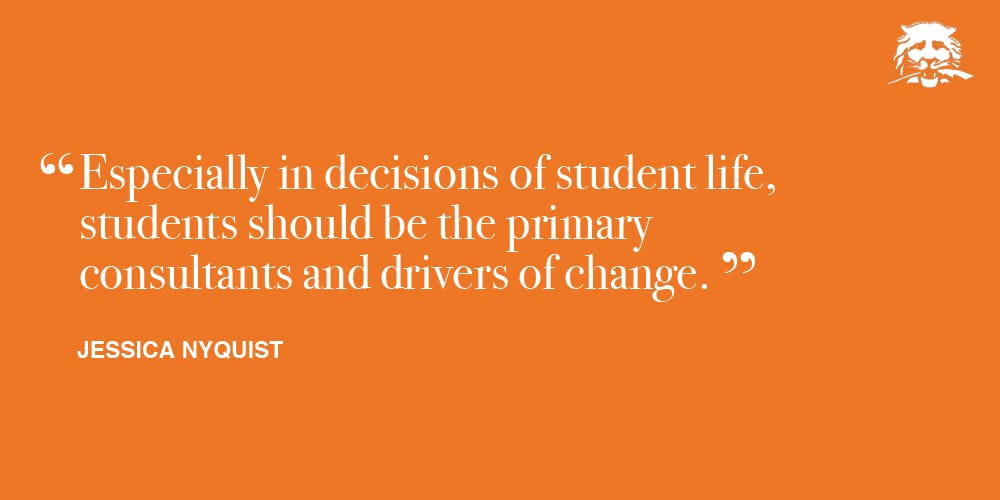Last week, the administration released a draft of a new dining proposal for undergraduate students that was greeted with swift backlash. Since the draft has been circulating, students have angrily contested the removal of options fostered by the proposed policy. The proposal essentially forces students to buy a meal plan from the University, which undermines student agency and causes a significant financial burden.
The proposal aims to enhance “residential college life and the student experience” by requiring upperclassmen who are independent or in co-ops to buy a minimum dining plan. Through observing the reaction of students across various groups, I have observed students’ adamant and vocal opposition to such administrative authoritarianism. The administration makes efforts to include students in policy reform discussions, but this working relationship and exchange of ideas must be enhanced. The administration must dedicate more energy to reaching out to students and incorporating their input before making policy proposals.
Students responded in “frustration and outrage regarding the potential [dining] plans.” One independent student, Will Johnson ’19, commented, “I feel that this proposal takes away a lot of freedom from students … I chose to be independent not only to save money but also to have the freedom to spend money on what I want.” This student response conveys two central complaints of the broader student body: the lessened control over their own dining choices and the imposed financial burden of the proposal.
The Honor Code controversy earlier this academic year was another major instance of administration-student tensions. After an email by the administration stated that the University had essentially decided to disregard a student vote on Honor Code reform, the student body reacted in outrage. One guest contributor to the ‘Prince’ exclaimed to students, “You should be absolutely furious right now. We just had our … rights obliterated by a short email sent by several administrators.” In other words, students felt blindsided, as their provided pipeline for change, the referendum system, was ignored by the University.
In 2012, the administration’s ban on first-year Greek life stirred a similar student reaction. The administration claimed the ban sought to improve social life on campus, but a substantial amount of students were widely dissatisfied. Therefore, students reacted with anger regarding the University’s involvement in the private social lives of students. Jake Nebel ’13 led the protest against the policy, explaining the benefits of Greek life on campus and likewise claiming “social self-determination is important for students to have and to develop.”
From my time at Princeton, I have found strong student contempt for the administration’s removal or reduction of our freedoms. The intense student reaction to the proposed dining hall plan and the administration’s staying of past Honor Code referenda earlier this year embody the sentiment against administration overreach.
While we accept quasi-paternalistic policies from the University such as freshmen and sophomore housing assignments, students protest the reduction of rights when they do not feel adequately consulted by the administration that facilitates this reduction. With Honor Code reform, students felt slighted, as their directly stated desires were ignored. With the dining plan proposal, a restriction of eating options is combined with the financial imposition of the policy, angering students who feel the dining plan requirement is fundamentally unfair.
The current dining plan controversy asks the question: who is responsible for controlling social life on campus? These policies exemplify the administration taking control in this arena. The administration should take to heart the students’ responses to actions where their voice is not adequately heard and accounted for. Not only do these administration-led objectives feel deceptive, they are also less effective without a powerful student presence having an impact on such objectives.

Although the draft of the dining hall reform acknowledged student recommendations and the committee has invited students to three discussion events, the intense reaction by blindsided students demonstrates that they don’t feel heard or considered. These incidents drive a wedge between the students and the administration and make students pessimistic about the goals of the administration. Especially in decisions of student life, students should be the primary consultants and drivers of change.
Jessica Nyquist is a junior in computer science from Houston, Texas. She can be reached at jnyquist@princeton.edu.









